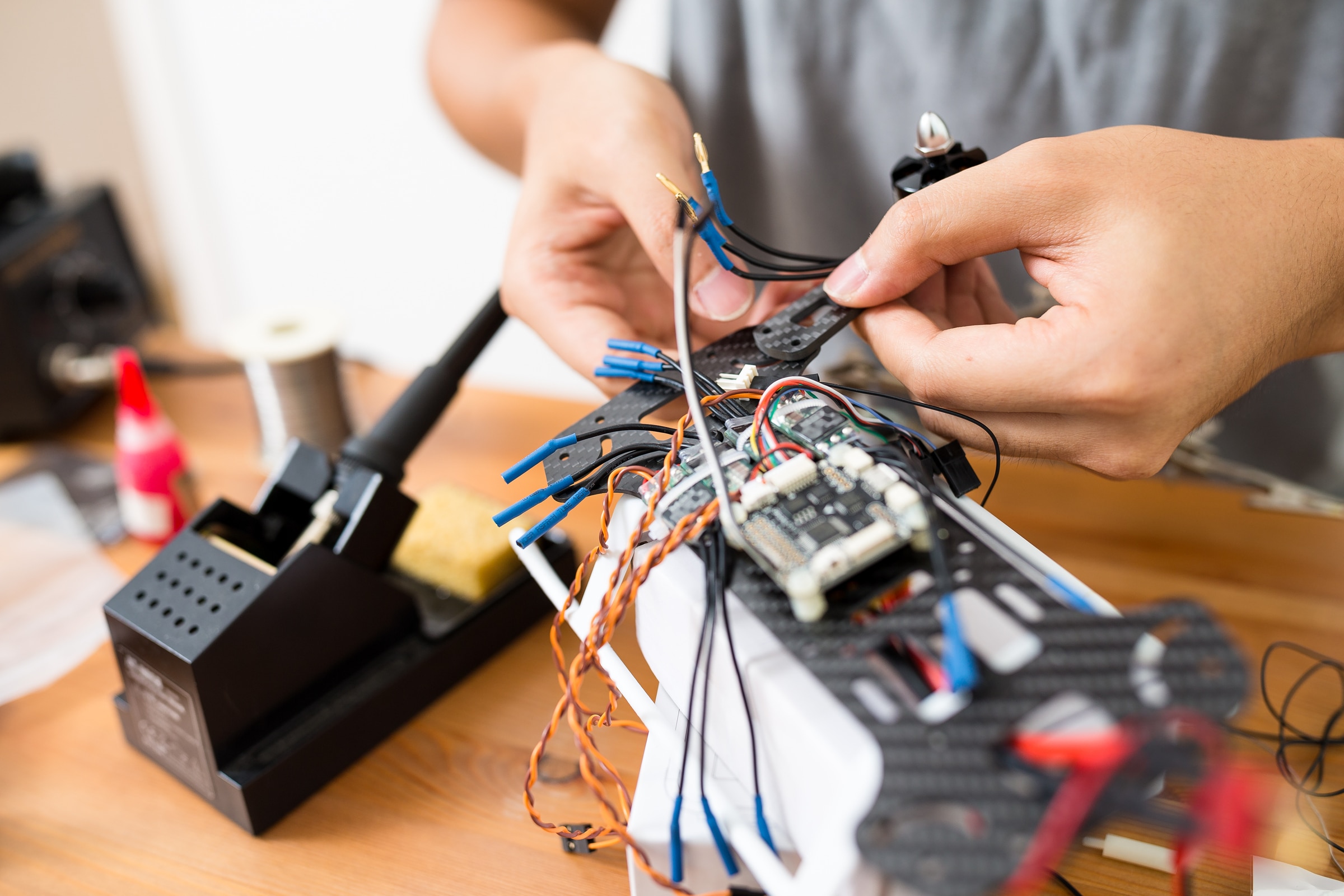Modern technology continues to evolve and influence various industry sectors, including real estate. One of the significant technological advancements today that is revolutionizing the real estate industry is drones. Drones, or unmanned aerial vehicles, offer vast potential in property marketing and site inspections. But how can real estate professionals tap into this technology to their advantage? This article will explore how drones can be utilized in real estate for site inspection and marketing purposes.
Reimagining Property Inspections with Drones
Real estate professionals know that a thorough property inspection is a time-consuming but essential task. Traditionally, inspections involve several hours of manual labor, sometimes even days for larger properties. However, with drones, this time can be significantly reduced.
Sujet a lire : What Are the Challenges of Constructing High-Density Housing in Historical City Centers?
Drones equipped with high-resolution cameras can capture detailed images and videos of a property from various angles and elevations. They can easily access hard-to-reach areas such as tall buildings or remote locations. This feature is particularly helpful for inspecting roofs, chimneys, and other high structures that usually require ladders or scaffolding. Drones can provide a more comprehensive, accurate, and safer inspection process.
Moreover, drones can perform thermal imaging to detect issues not visible to the naked eye. For instance, they can identify heat loss areas, potential water leaks, or electrical problems. This ability, combined with their high-resolution imaging, makes drones a powerful tool for obtaining a complete picture of a property’s condition.
Lire également : What Is the Impact of Urban Air Mobility on Real Estate Value and Land Use?
However, it’s important to note that the Federal Aviation Administration (FAA) has specific guidelines and regulations for drone operations. Real estate professionals should familiarize themselves with these rules to ensure lawful and safe drone use.
Drones in Real Estate Marketing
In addition to property inspections, drones have also found their place in real estate marketing. The unique aerial perspective they offer can enhance property listings and attract more potential buyers.
High-quality drone images and videos can showcase properties in their entirety, including surrounding areas. This provides potential buyers with a comprehensive view of the property, something that traditional ground-level photos can’t fully achieve. Drone footage can highlight unique property features, provide an overview of the neighborhood, or show proximity to amenities.
Aside from property listings, drones can also be used in creating marketing materials. For instance, aerial footage can be utilized in making virtual tours or promotional videos. These engaging contents can be shared on various platforms, including social media, enhancing a real estate professional’s online presence and reach.
Using Drones for Commercial Real Estate
The applications of drones are not limited to residential properties. They also hold significant potential in the commercial real estate industry.
Commercial properties, such as large office buildings, shopping centers, or industrial complexes, are often large and complex. Manual inspection of these properties can be challenging and time-consuming. Drones, with their ability to cover large areas quickly and obtain high-quality images and videos, offer a more efficient and effective way to inspect these properties.
In terms of marketing, drones can help highlight the scale and features of commercial properties effectively. Aerial footage can showcase the size, layout, and location of the property, providing invaluable information to potential investors or tenants.
The Future of Drones in Real Estate
While drones are already making an impact in the real estate industry, their potential is far from fully realized. As drone technology continues to evolve, we can expect more advanced features that will further enhance property inspections and marketing.
For instance, drone automation can streamline property inspections. Automated drones can follow pre-set routes, ensuring that all areas of the property are covered. This reduces the need for human operators and the risk of missing any potential issues.
In marketing, the integration of drones with virtual reality (VR) technology can create immersive property viewing experiences. Potential buyers can take virtual tours of properties from the comfort of their own homes, saving them time and making the property buying process more convenient.
In conclusion, drones offer real estate professionals a powerful tool that can transform property inspections and marketing. By embracing this technology, real estate professionals can streamline their processes, improve their services, and stay ahead in the competitive real estate industry. It is, therefore, essential for real estate professionals to adapt to this technological advancement and harness its full potential.
The Advantage of Drones in Real Estate Photography
Another area where drones excel in real estate is photography. Whether for residential or commercial real estate, high-resolution drone photography can greatly enhance a property’s appeal to potential buyers.
Drones equipped with high-quality cameras can capture stunning aerial photos of a property. This aerial perspective provides a unique view of the property, highlighting its features in a way that traditional ground-level photos cannot. These photos can showcase the property’s layout, size, and its surrounding environment, providing a comprehensive view that can attract more potential buyers.
Drone photography is not just about taking photos from a higher altitude. Drones can take photos from different angles and distances, allowing real estate professionals to showcase the property from various perspectives. This flexibility in drone photography can maximize a property’s visual appeal, creating a more impactful impression on potential buyers.
Furthermore, drone photography can be particularly advantageous in commercial real estate. Aerial photos can effectively highlight the scale of commercial properties, which can be appealing to potential investors. Large buildings, industrial complexes or shopping centers can be fully captured in one shot, providing a clear and accurate representation of the property.
However, real estate professionals should be aware of state and local regulations regarding drone usage for photography. It’s necessary to obtain the appropriate permits and follow the rules to ensure legal and safe operations.
Leveraging Drone Technology for Competitive Advantage in the Real Estate Industry
The real estate industry is highly competitive. To stay ahead, real estate professionals need to utilize the latest technologies, and drones offer such an opportunity.
In a market where high quality images are a key factor in attracting potential buyers, drones can provide an upper hand. The high-resolution images and videos captured by drones can significantly enhance real estate marketing efforts. This can lead to increased interest from potential buyers, faster sales, and even higher selling prices.
Additionally, drones can make property inspections more efficient and effective. This not only saves time but also provides a more accurate and comprehensive assessment of a property. This can be particularly beneficial in commercial real estate, where properties are often large and complex.
In terms of future prospects, drones have the potential to become even more integrated into the real estate industry. As drone technology continues to advance, more sophisticated features and applications can be expected. These could include automated inspections, virtual reality property tours, and even more advanced imaging capabilities.
Drone technology is rapidly transforming the real estate industry. By embracing this technology, real estate professionals are not only improving their services but also gaining a competitive edge in the market. It’s clear that drones are not just a trend, but a powerful tool that’s here to stay in the real estate industry.
In conclusion, drones provide numerous benefits to the real estate industry. They are a valuable tool for property inspections, marketing, and photography. Real estate professionals who leverage this technology can enhance their services, attract more potential buyers, and gain a competitive advantage in the market. As drone technology continues to evolve, it will undoubtedly play an increasingly significant role in the future of the real estate industry.






